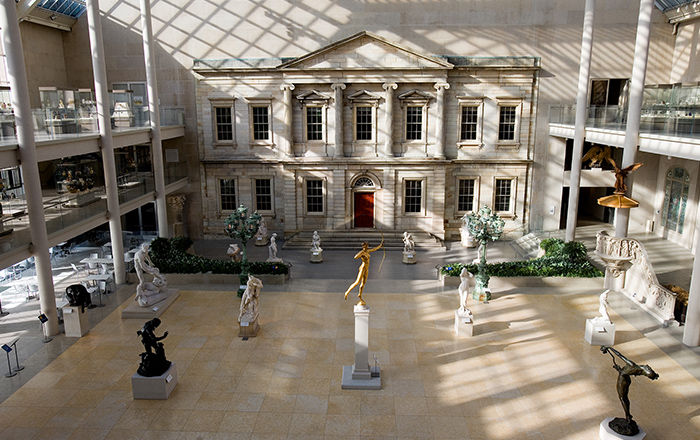Plenty or Pomona, the Goddess of Plenty, Gardens and Orchards
Workshop of John Skillin American
Workshop of Simeon Skillin American
Not on view
This dramatic figure possesses stylistic and technical traits of the Skillin family workshop—the lead woodcarvers of maritime figureheads and decorative elements as well as architectural and furniture ornaments in Boston. Pomona, the goddess of gardens, orchards and plenty derives from an allegory adopted from Book XIV of the Metamorphoses by Roman poet, Ovid. Her image is associated with fertility and prosperity while also serving as a cautionary tale of unrequited love. In Ovid’s epic, Pomona was courted by Vertumnus who appeared as a farmer, shepherd, soldier, fisherman and others all of whom she turned away. In the final scene of the story, Vertumnus appears as an old woman and warns Pomona that her continuous rejections might prevent the prosperity of her future. The allegory of Pomona was a fitting subject for gardens and summerhouses, especially as these sites were frequented by courting couples
